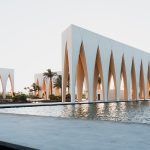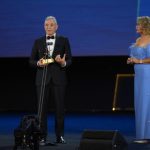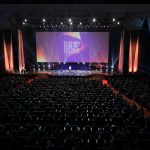The programme is expected to foster empathy and understanding, contributing to a broader conversation about shared human experiences.
El Gouna Film Festival has announced its carefully curated programme titled ‘Window on Palestine,’ showcasing a collection of films that delve deep into the heart of Palestinian narratives. This selected lineup sheds light on the challenges faced by resilient individuals, offering audiences a profound understanding of the human experiences within Palestine.
Scheduled to take place from December 14 to 21, 2023, the sixth edition of the El Gouna Film Festival aims to amplify unfiltered narratives through its ‘Window on Palestine’ programme. In collaboration with the Palestine Film Institute, this initiative provides a platform for voices that have long been overlooked, emphasising the festival’s commitment to supporting the just cause of the Palestinian people.
The films featured in the programme span a diverse range of stories, each contributing to the rich tapestry of Palestinian life. Mohamed Jabaly’s Ambulance delivers a raw, first-person account of the last war in Gaza in 2014, revealing the stories behind the recurring violence. Lina Soualem’s Bye Bye Tiberias captures the personal journeys of four generations of daring Palestinian women, each influencing the world despite their dispersed identity.
Condom Lead by Arab and Tarzan Nasser takes a comedic approach to the Gaza War, exploring the challenges faced by a married Palestinian couple attempting intimacy amidst disruptive Israeli shelling. May Odeh’s animated short Drawing for Better Dreams brings to life the struggles of Palestinian children in the Occupied Territories, highlighting the power of allowing young people to hope and dream.
Yousry Nasrallah’s epic adaptation, Bab el Shams, narrates the story of the people of Palestine, spanning 50 years of history, suffering, hope, and love. Not Just Your Picture by Anne Paq and Dror Dayan follows the devastating journey of German-Palestinian siblings seeking justice for their family after an Israeli airstrike on Gaza.
Sina Salimi’s Roof Knocking offers a glimpse into the paradoxical reality in Gaza, encouraging viewers to reflect on the challenge of preserving amidst constant threats.
In Shujayya, directed by Mohammed Almughanni, a typical Gaza family faces upheaval as bombing attacks demolish their home.
Farah Nabulsi’s The Teacher delves into the daily frustrations and rage experienced by Palestinians, illustrating the impact of living in a setting where individuals with firearms dictate one’s actions and lifestyle. To My Father, directed by Abdelsalam Shehadeh, explores Palestinian and Arab history, highlighting the transformative power of photography.
In a statement, the festival’s director Intishal Al Timimi emphasised the significance of Window on Palestine and said: “Through these compelling films, we aim to open a window into the rich and complex tapestry of Palestinian life. We hope that these stories will resonate with audiences, fostering empathy and understanding. By providing a platform for these voices, we contribute to a broader conversation about the shared human experiences that connect us all.”
Accompanying the film programme, the discussion ‘Camera in Crisis: A Lens on Palestine’ will explore the intricate landscape of filmmaking in Palestine. Esteemed filmmakers Rashid Mashharawi, Najwa Najjar, Khalil Al Mozian, and Gaza-born actor Ahmed Al Munirawi will share their firsthand experiences, shedding light on the unique challenges faced during the filming process, particularly in crises prevalent in Palestine. The discussion will be moderated by Mohammed Almughanni, offering an insightful journey into the resilience and determination of filmmakers navigating adversity to bring powerful narratives to the screen.
Speaking about the film screenings and the proposed discussion, Marianne Khoury, Artistic Director of GFF, added: “The inclusion of the ‘Window on Palestine’ programme in this special edition of GFF serves as a potent demonstration of our festival’s commitment to amplify the voices of Palestinians through the lens of cinema. This programme offers to its audiences a unique opportunity to unearth or revisit the nuanced Palestinian narratives portrayed on the screen and engage in meaningful discussions, with filmmakers who will be able to make it to El Gouna.”

















































































